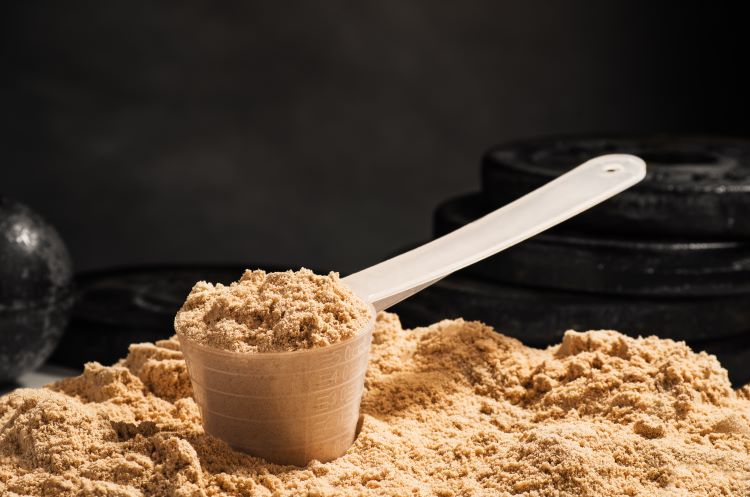We tend to come across whey protein more than casein protein. Nutritionist Laura Jennings has all you need to know about this recovery-boosting supplement…
Protein supplementation is often associated with the best protein powders in the form of whey protein. But another type of protein, casein, is also one of the best supplements for muscle growth. And it’s gained recognition for its unique properties and potential benefits.
Whether you’re an athlete or simply seeking to optimize your protein intake, understanding casein can help you make an informed decision about your nutrition. Here we delve into the world of casein, exploring its composition, digestion process, benefits, and considerations for incorporating it into your diet.
Casein protein constitutes approximately 80% of the total protein found in milk. Unlike its fast-absorbing whey counterpart, casein is considered a ‘slow protein’. That’s primarily due to its ability to form a gel-like substance in the stomach.
That characteristic leads to a gradual release of amino acids into the bloodstream over an extended period. It provides a steady supply of nutrients to support muscle recovery and growth, even hours after exercise.
Benefits of casein protein
Muscle Growth: Casein’s slow digestion rate makes it ideal for individuals seeking a continuous supply of muscle-building nutrients during periods of fasting, such as overnight or between meals. Research suggests that consuming at least 1.4oz / 40g of casein protein before sleep positively affects muscle recovery and strength.
By providing a steady stream of amino acids, casein helps prevent muscle breakdown and promotes an environment for muscle growth, benefiting bodybuilders and endurance athletes aiming to speed up muscle recovery.
Weight Management: Casein’s slow digestion properties contribute to a higher satiety factor compared to other protein sources. This quality leads to feelings of fullness and reduced cravings. Incorporating casein into a balanced diet can contribute to better appetite control and support weight loss or weight management goals.
Calcium Absorption: Casein is not only a protein source but also a rich source of calcium. Many casein protein sources are lactose free, making them an excellent calcium source for lactose-intolerant individuals. Combining casein with bone-supporting nutrients like vitamin D can further promote calcium absorption.
Considerations for use
Post-workout preferences: Casein may not be first choice for immediate post-workout nutrition. Fast-absorbing proteins like whey are typically favoured during this critical window to ensure rapid delivery of amino acids for muscle repair.
Allergens: Casein protein is derived from milk, a common allergen for some individuals. Additionally, some people may experience gastrointestinal effects such as bloating, gas or constipation when consuming casein, despite its lower lactose content.
Lower leucine content: Leucine, a crucial amino acid, plays a key role in kick-starting the muscle building process. Casein contains approximately 8% leucine, which is 3% less than whey protein. While casein is a high-quality protein source, other supplements like whey may be more suitable for individuals aiming to maximise muscle growth.
It’s important to note that the considerations mentioned may not affect everyone. Individuals have different nutritional requirements and tolerances, so considering your individual circumstances is essential before incorporating a protein supplement into your diet.
Casein offers unique advantages as a slow-digesting protein. Its sustained release of amino acids makes it ideal for muscle recovery and growth during periods of fasting. Furthermore, its benefits in weight management and calcium absorption make it a great asset to a well-rounded nutrition plan.
Related content:






